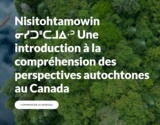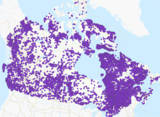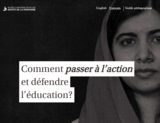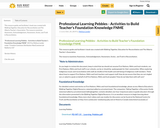«Inscrivez-vous pour une visite virtuelle de 45 minutes, puis suivez-la avec une unité en classe sur les droits de l'homme et le rôle d'intervenant. L'unité en classe comprend un projet d'investigation.
Visite virtuelle :
Les élèves apprendront à être des intervenants en droits de l'homme en découvrant les histoires de personnes qui ont utilisé leurs forces personnelles pour défendre leurs droits et les droits des autres, créant ainsi un changement.
Les élèves vont :
1. Apprendre à identifier les traits communs à tous les intervenants et comprendre que chacun de nous possède également ces traits de manière unique.
2. Découvrir les expositions et l'architecture inspirante du musée comme s'ils étaient physiquement présents.
Interagir avec un guide du musée et poser des questions pour mieux comprendre comment ils peuvent agir pour un changement positif.
3. Participer à des discussions, à la réflexion critique et à l'évaluation de leur rôle dans la protection de leurs propres droits et des droits des autres.
Unité en classe :
La ressource "Soyez un Intervenant" est une unité d'apprentissage basée sur des projets conçue pour compléter le programme scolaire "Passez à l'action". Cette ressource cible les élèves de l'intermédiaire et encourage l'investigation et l'action sur les questions de droits de l'homme. Les élèves examineront les traits des intervenants en droits de l'homme et suivront leur exemple. À la fin du projet, les élèves auront eu l'occasion d'explorer une question qui les passionne personnellement, de partager leurs connaissances et de guider les autres vers l'action.
Le site web "Passez à l'action" est une expérience numérique conçue pour soutenir l'apprentissage des élèves dans le cadre d'une unité d'apprentissage basée sur des projets axée sur les droits de l'homme. Les élèves qui développent des projets d'intervenants participeront à une enquête personnelle et à une action sur les questions de droits de l'homme qui leur tiennent à cœur. Les élèves apprendront les traits des intervenants en droits de l'homme, seront introduits à la Déclaration universelle des droits de l'homme et examineront leurs forces personnelles. En suivant l'exemple des intervenants dont ils apprennent l'histoire, les élèves seront mis au défi de prendre des mesures tangibles pour devenir eux-mêmes des intervenants en droits de l'homme.
Si vous avez besoin de cette ressource dans un format différent à des fins d'accessibilité, veuillez contacter info@droitsdelapersonne.ca »
Site web de «Passez à l'action» https://droitsdelapersonne.ca/passezalaction/#/
Guide pédagogique du programme «Passez à l'action» https://droitsdelapersonne.ca/passezalaction/#/guide-pédagogique»








